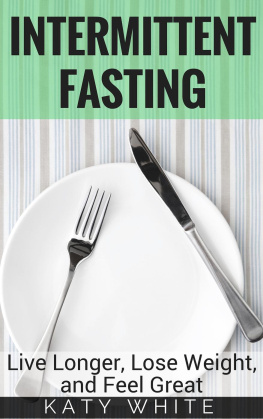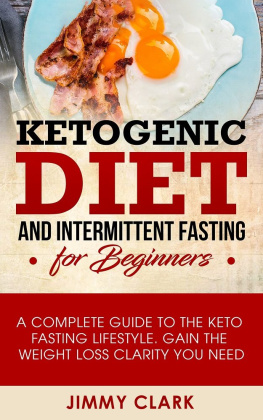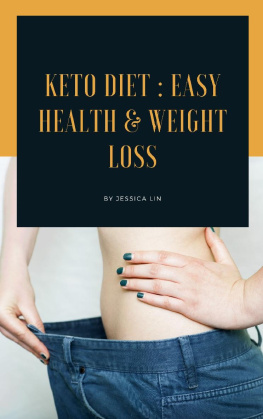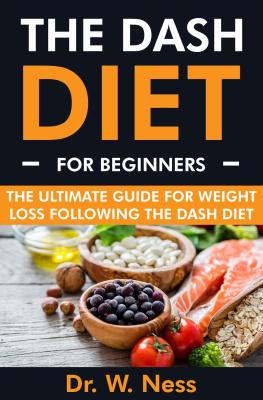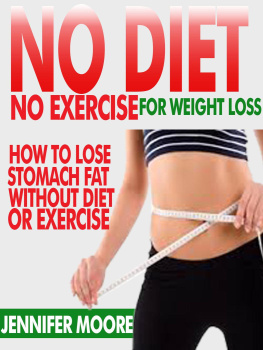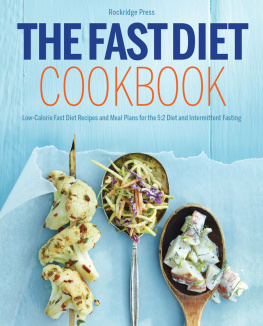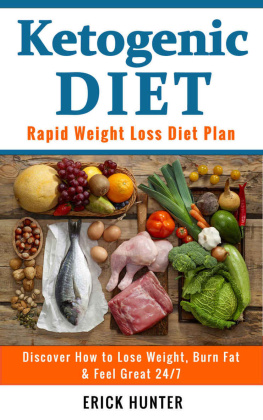The Simple Science of Weight Loss and Fat Loss
Forget Intermittent Fasting and Keto!
Discover the Three Habits of Dieting Success so That You Can Make Any Diet Work and Get the Body You Want Effortlessly
Andy Xiong
Copyright 2020 by Andy Xiong - All rights reserved.
The contents of this book may not be reproduced, duplicated or transmitted without direct written permission from the author.
Under no circumstances will any legal responsibility or blame be held against the publisher for any reparation, damages, or monetary loss due to the information herein, either directly or indirectly.
Legal Notice:
This book is copyright protected. This is only for personal use. You cannot amend, distribute, sell, use, quote or paraphrase any part or the content within this book without the consent of the author.
Disclaimer Notice:
Please note the information contained within this document is for educational and entertainment purposes only. Every attempt has been made to provide accurate, up to date and reliable complete information. No warranties of any kind are expressed or implied. Readers acknowledge that the author is not engaging in the rendering of legal, financial, medical or professional advice. The content of this book has been derived from various sources. Please consult a licensed professional before attempting any techniques outlined in this book.
By reading this document, the reader agrees that under no circumstances is the author responsible for any losses, direct or indirect, which are incurred as a result of the use of information contained within this document, including, but not limited to, errors, omissions, or inaccuracies.
This book is dedicated to Bi Jun, who is always asking me what the best diet is and how to lose weight.
Without your asking, I would have never realized the need for principles-based dieting. ;)
Cover designed by: Brian Du
Instagram: @briandudesign
Website: www.briandu.design
This book is coming to Audible

www.andyxiong.com/audible/fat
Also coming to Amazon and iTunes.
Are you new to the concept of audiobooks?
Do you love books and literature but never have the time to sit down and read?
What if you can enjoy your favorite reads another way, perhaps while performing mundane tasks?
Audiobooks are a healthy way of structuring boring tasks.
Sex up what isnt sexy; try out audiobooks today!
Audible has the largest library of audiobooks not for rent, but for you to own.
Contemporary new books, professional production, and quality narration...
Discover why Audible is the most popular audiobook service,
Get this book in audio for FREE with a one-month free trial of Audible
Table of Contents
Introduction
The Simple Science of Weight Loss and Fat Loss . An attractive title, but is it even possible to declare something as both simple and scientific? Science is inherently complex, and the best solutions in life cant be simple right? But truth is, the best solutions in life are always simple and obvious.
In fact, most of you probably already know how to lose weight: Eat less, move more. More specifically, if you consume fewer calories than you expend, you will lose weight. This simple concept is taught throughout undergraduate nutrition programs. You can watch just about any YouTube video about calories and macronutrients and you can expect to see the following comment: My 4-year degree in nutrition summarized in X minutes.
But, why then, does eating less and moving more not work all the time? There are plenty of individuals who have consumed low-calorie diets and failed to lose weight. Its supposed to be backed by science, isnt it? Well, it turns out that real life is bound to throw a curveball at you regardless of what science says. And no matter how much a scientific study tries to emulate real life, it can never get it right.
One reason why simply counting calories does not work is hormonal imbalances. If your hormones are off and imbalanced for whatever reason, you can consume very few calories yet fail to lose weight. Other times, the food themselves may be to blame. Many molecules carbs, sugar, fructose, saturated fats, high-fructose corn syrup, gluten, and more have been demonized for causing the obesity epidemic that Americans fight today.
And its reasons like these hormonal imbalances and improper food choices that gave birth to the thousands of diets today. Among these diets, intermittent fasting and the keto diet have shown to be particularly effective in addressing hormonal issues. Other diets, like the Paleo diet, the Mediterranean diet, and Whole30, promote eating only the healthiest of foods.
But the problem persists: Even the most scientifically proven diets, like intermittent fasting and the keto diet, have failed individuals when it comes to real world application. This gives the impression that losing weight is hard and complicated. And thus, more complicated solutions arise: Combine intermittent fasting with the keto diet; fast for longer periods of time; avoid a more specific molecule shifting the blame from all carbs to sugar, then from sugar to fructose.
Does this mean that science is flawed? Or could it be that there is no definite answer to losing weight? No. The real issue is the weight loss industry itself. The weight loss industry is one of the biggest industries today. It is worth $100 billion in the U.S. alone. It would be a lie to say that it isnt a lucrative industry. But thats precisely the problem. Science isnt flawed, but its how marketers use science that is flawed.
Most diets today are based on the flavor of the month and not on trusted science, but on faulty scientific research. There will always be new studies with new findings, but just because its new does not justify the findings. What if, out of the whole literature, this was the first and only study to find a specific result? What if the thousands of studies performed prior found the opposite? Just because its new doesnt mean all the previous studies become invalid. No there could be issues with that one new study. The experiment can be designed to produce a very certain outcome, perhaps backed by corporate funding. Yet, new scientific findings are often presented as truth nowadays.
But just because one study disagrees with the rest does not make it invalid. Different studies should result in different findings. While you may think that this goes against the notion that science is about finding truth, its actually a pretty common occurrence. As you will see in the next chapter, you can have one study suggest that low-fat diets are the best for losing weight and another suggest that low-carb diets are the best. The real value of a study is not in the results, but what those results mean when compared with the rest of the literature. Each study is a small piece of a larger puzzle.
The biggest problem remains this though: As humans, we are drawn to quick fixes to lifelong issues. Its in our nature, and marketers take advantage of that. The best marketers are not scientists, and the best scientists are not marketers. Yet, it takes a lot of money and marketing know-how to convince the masses of a point of view. Thus, what we hear comes from marketers, not scientists. And, as lead social psychologists Dr. Anthony Pratkanis and Dr. Elliot Aronson noted, what the masses term truth is that information which is most familiar. It is propaganda at its finest. [1]
The goal of this book is to challenge the notion that diets are the solution to unwanted weight gain and obesity. While diets can result in weight loss, they are flawed. Diets focus on only one aspect of a healthy lifestyle, yet life is interdependent and interconnected. Without disregard for science, we need to take a holistic approach to losing weight one that involves dieting and healthy living.
Next page



